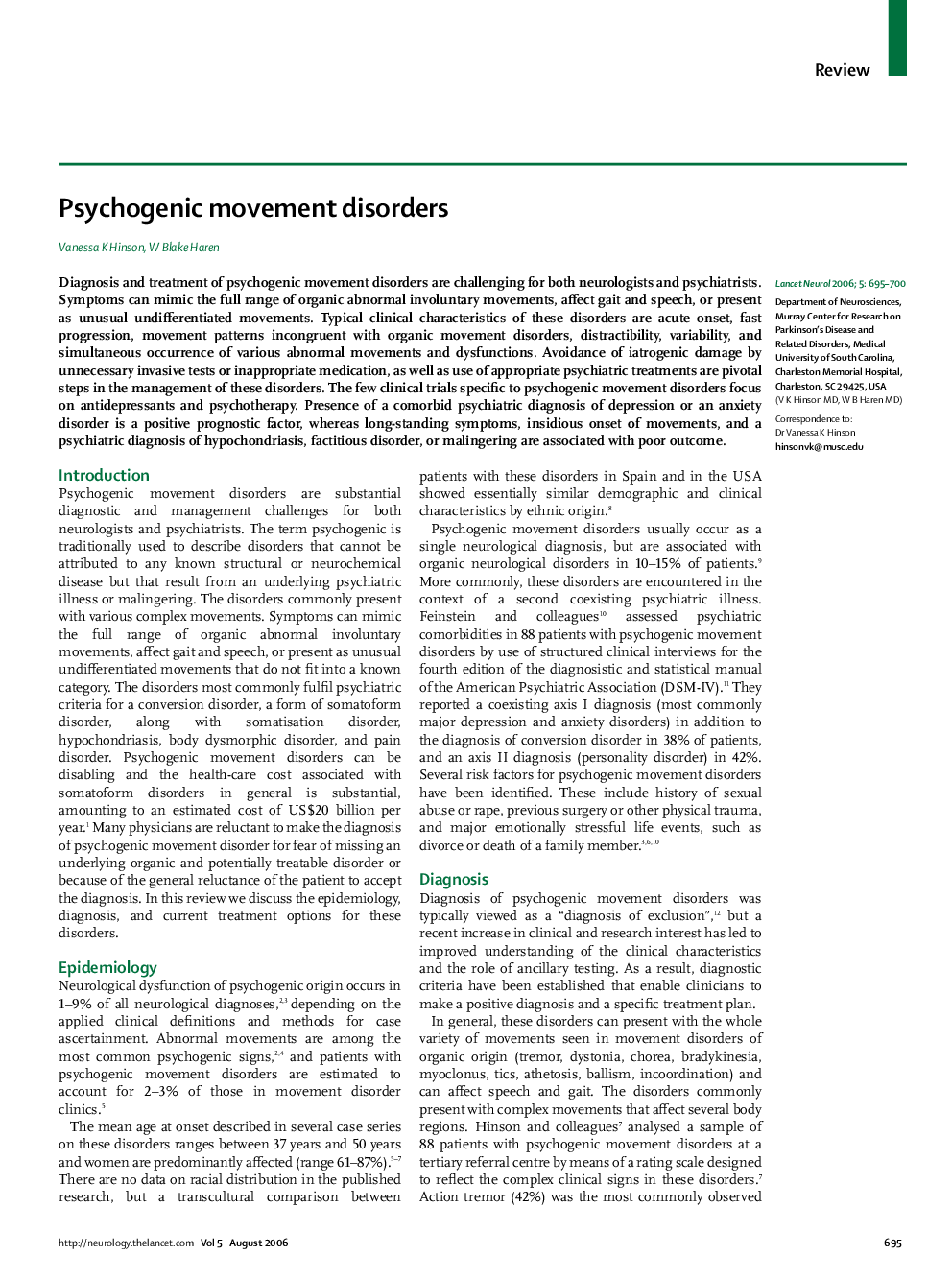| Article ID | Journal | Published Year | Pages | File Type |
|---|---|---|---|---|
| 3067606 | The Lancet Neurology | 2006 | 6 Pages |
SummaryDiagnosis and treatment of psychogenic movement disorders are challenging for both neurologists and psychiatrists. Symptoms can mimic the full range of organic abnormal involuntary movements, affect gait and speech, or present as unusual undifferentiated movements. Typical clinical characteristics of these disorders are acute onset, fast progression, movement patterns incongruent with organic movement disorders, distractibility, variability, and simultaneous occurrence of various abnormal movements and dysfunctions. Avoidance of iatrogenic damage by unnecessary invasive tests or inappropriate medication, as well as use of appropriate psychiatric treatments are pivotal steps in the management of these disorders. The few clinical trials specific to psychogenic movement disorders focus on antidepressants and psychotherapy. Presence of a comorbid psychiatric diagnosis of depression or an anxiety disorder is a positive prognostic factor, whereas long-standing symptoms, insidious onset of movements, and a psychiatric diagnosis of hypochondriasis, factitious disorder, or malingering are associated with poor outcome.
